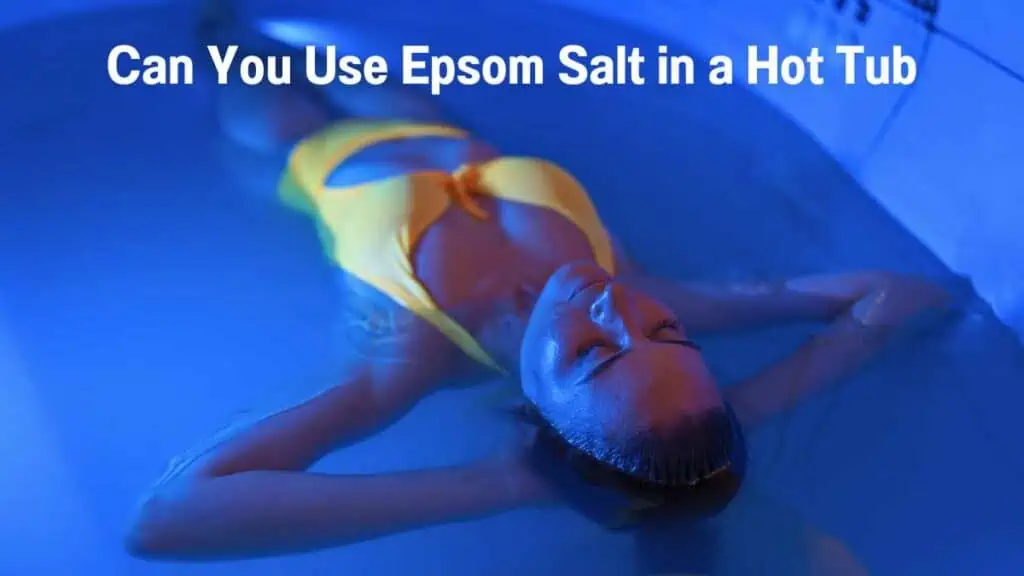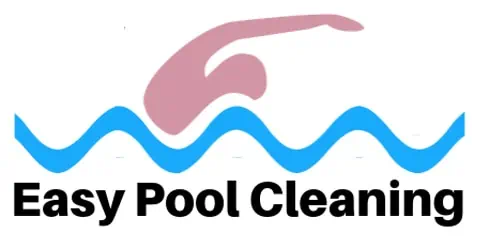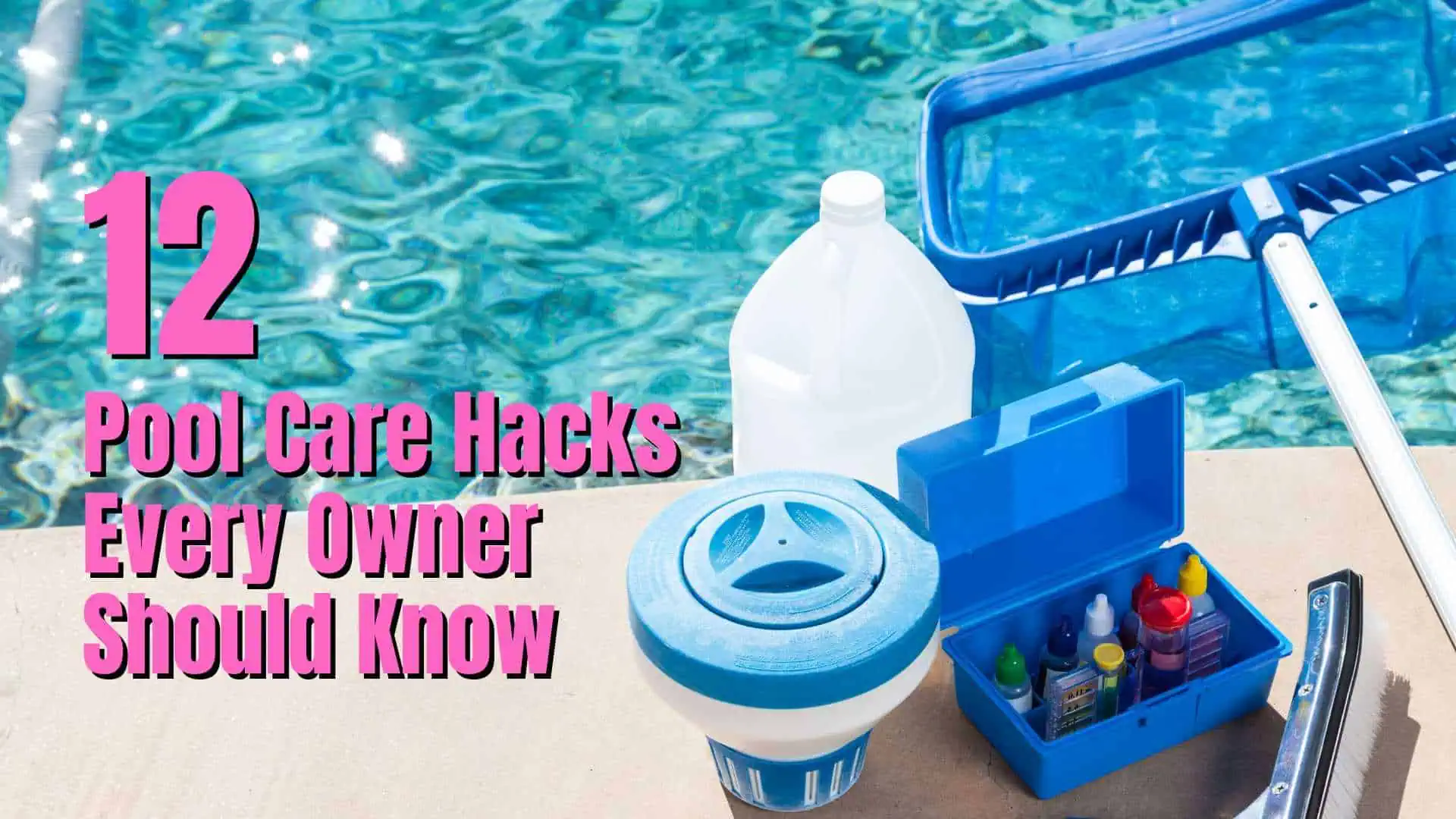Hot tubs are a great way to unwind and relax after a long day, and many people wonder if adding Epsom salt in a hot tub could enhance the experience.
Epsom salt is known for its therapeutic benefits, such as soothing sore muscles and reducing inflammation. However, there are potential risks and consequences of combining Epsom salt with your hot tub.
Epsom salt, also known as magnesium sulfate, is an alkaline chemical compound that can have negative effects on the water chemistry and the components of your hot tub.
Instead of Epsom salt, there are alternative methods to achieve similar benefits without the potential risks.

Key Takeaways
- Epsom salt may disrupt hot tub’s water chemistry balance
- Potential damage to hot tub components can result from Epsom salt usage
- Consider alternatives, like spa crystals or aromatherapy products, for a safer relaxation experience
So, Can You Use Epsom Salt in a Hot Tub?
When it comes to hot tubs, you might wonder if it’s possible to add Epsom salts for a relaxing soak. After all, if you put them in your bathtub without any problems, what is the difference with a hot tub?
It’s important to know that, generally, it is not recommended to put Epsom salts in a hot tub due to potential chemical imbalances and damage.
Epsom salts, or magnesium sulfate, are an alkaline compound that can quickly disrupt the total alkalinity and pH balance in your hot tub’s water. This imbalance then hinders the performance of sanitizers, making it harder to keep your spa clean and safe.
In addition, the acidic properties of Epsom salts can cause corrosion to the metal parts and components of your hot tub, leading to costly damages in the long run.
Can Epsom Salts Damage Hot Tub Components?
It’s essential to understand how Epsom salts can interact with the various components of your hot tub.
While Epsom salts may offer some benefits to you, such as soothing sore muscles and relieving stress, adding them to your hot tub can negatively impact the balance of your hot tub water and damage its components.
- Epsom salts can disrupt the pH balance and total alkalinity of your hot tub water. This imbalance can lead to several issues and make it difficult to maintain the water’s clarity and sanitation. Your hot tub relies on a delicate balance of chemicals to operate efficiently and maintain a safe soaking environment. Disrupting this balance can lead to ineffective sanitization and potentially harm the hot tub’s users.
- Corrosion is another concern when adding Epsom salts to your hot tub. The salts can be corrosive to metal parts such as the heater, pump, and other equipment. As a result, you may find yourself dealing with rusted, damaged components that require frequent repairs or even replacement.
- Additionally, the corrosive nature of Epsom salts can affect the seals and gaskets in your hot tub’s plumbing system. These essential components help maintain watertight connections and prevent leaks. If the seals and gaskets degrade due to corrosion, you might experience leaks that can cause significant damage to your hot tub and the surrounding area.
- Scale buildup and clogged pipes are also possible outcomes.
- Plastic pieces, such as pipes and fittings, are also at risk when Epsom salts are present in the water. While these components may be more resistant to corrosion compared to metal parts, they can still suffer damage over time.
Alternative Options for Relaxation in Hot Tubs
If you’re looking for ways to enhance your hot tub relaxation experience without relying on Epsom salt, there are several alternative options to consider. These alternatives can be fun, calming, and easy on your hot tub’s maintenance and performance.
Aromatherapy Products: A variety of hot tub aromatherapy products are available, designed specifically for use in hot tubs. They often include natural herbs, vitamins, and minerals, providing therapeutic benefits without causing damage to your hot tub’s components or disrupting your water chemistry.
Not only do these aromatherapy products offer a similar, relaxing sensation to Epsom salt, but they can also help detoxify your body and rejuvenate your skin.
Some popular options include aromatherapy crystals, spa elixirs, and bath bombs from brands like Spazazz and inSPAration.
It’s important to follow the manufacturer’s recommended usage to prevent any issues with your hot tub’s filter, performance, or scale buildup on metal parts.
Dead Sea salts: are a popular choice for hot tub owners, as they contain a unique blend of minerals that provide various health benefits.
Originating from the Dead Sea (which I have attempted to swim in), these salts are rich in magnesium, potassium, and calcium. Their mineral content can help relax your muscles, soften the skin, and relieve stress.
To use Dead Sea salts in your hot tub, simply dissolve a small amount in warm water and add it to your spa according to the product’s instructions. Check out Dead Sea Salt on Amazon.
Hot tub-safe bath salts: are formulated without Epsom salt or high levels of magnesium. These products usually contain a mixture of beneficial minerals, essential oils, and fragrances to create a soothing and relaxing environment.
Some of these bath salts may even be designed to work with your hot tub’s water care system to maintain proper water chemistry. When using such bath salts, always follow the manufacturer’s directions to ensure you’re using the correct amount and won’t damage your hot tub.
What to Do if You Intend to Use Epsom Salt
If you have made up your mind to use Epsom salt in your hot tub then you may be able to manage any potential problems and damage.
However, I must stress, I am not recommending that you do – in fact, I advise against it. But it’s your hot tub so the decision is yours.
Adjusting Alkaline and Salt Levels: If you’re concerned about the potential damage that Epsom salt may cause due to its high alkalinity, you can take measures to balance your hot tub’s chemicals by adjusting alkaline and salt levels.
Carefully monitor your water chemistry and consult your hot tub manufacturer’s guidelines for advice on maintaining a healthy balance. By doing this, you may achieve a soothing and comfortable hot tub experience without the potentially corrosive effects of Epsom salt.
If you intended to empty the hot tub straight away after adding Epsom salts and soaking in it then it is unlikely that any damage would occur. Just make sure you flush out the pipework.

Understanding Epsom Salts
Epsom salt, also known as magnesium sulfate, is an alkaline compound consisting of magnesium and sulfate. It has a mildly acidic property, making it popular for a variety of home and health remedies, including muscle relaxation and reducing inflammation.
You might have heard about the use of Epsom salt in your normal bathtubs for these reasons. When you soak in an Epsom salt bath, your body absorbs some of the magnesium, which can improve muscle function and reduce inflammation. It can also provide relief from mild aches and pains.
Despite the benefits of Epsom salt in a normal bathtub, it’s important to understand that using it in your hot tub is not advisable. The acidic properties of Epsom salts can quickly disrupt the total alkalinity and pH balance of the water in your hot tub.
Another concern you should be aware of is the reaction between magnesium and chlorine. If these two elements combine, there is a potential risk of flash burns on your skin, which can be painful and lead to skin infections later on.
Lastly, remember that using Epsom salts in a hot tub can cause issues with the plumbing. The salts can potentially corrode the plumbing system, leading to costly repairs and potential safety concerns.
Can You Use Epsom Salts in a Spa Bath?

Although using Epsom salts in a hot tub is not recommended the same is not true of using them in a spa bath. Provided we are talking about a bathroom spa bath.
The reason is that after you have had a good soak with Epsom salts you empty your spa bath. That is unlike in a hot tub when the water is left in the tub which then may cause problems to the plumbing.
Epsom Salts in Hot Tub FAQs
Can I add Epsom salt to an inflatable hot tub?
It is generally not recommended to add Epsom salt to an inflatable hot tub or any hot tub due to its acidic properties and potential to disrupt the chemical balance of the water. This can cause corrosion, hinder sanitizer performance, and make the water cloudy.
Are essential oils safe for hot tub use?
Some essential oils are safe for hot tub use, but they should be specifically designed for hot tubs or spas. Avoid using regular essential oils as they may cause damage to the hot tub’s plumbing or negatively affect water chemistry. It’s best to consult your hot tub manufacturer for their recommendations.
Which mineral salts are suitable for hot tubs?
There are some mineral salts specifically designed for hot tub use, like Dead Sea salts or products labeled as “spa salts.” These mineral salts are formulated to work with your hot tub’s chemistry and provide relaxing benefits similar to Epsom salt without causing imbalances or damage.
How much Epsom salt should I use in my hot tub?
Although not recommended, if you still decide to use Epsom salt in your hot tub, use caution and start with a small amount – such as 1 or 2 cups per 100 gallons of water. Mixing it thoroughly and frequently testing your water to ensure the pH and alkalinity levels remain balanced is crucial.
What are the benefits of using Epsom salt in a hot tub?
Epsom salt is believed to provide relaxation, relief from muscle aches, and improved skin. However, as mentioned earlier, it is not recommended to use Epsom salt in a hot tub due to its potential to cause chemical imbalances and harm to your hot tub. Instead, opt for mineral salts designed for hot tub use to experience similar benefits.
Summary
In summary, it’s best not to use Epsom salts in a hot tub.
Epsom salts in your hot tub can have unintended and harmful consequences for both the hot tub’s components and the safety of its users.
There are plenty of alternative methods to enhance your spa experience. By trying out hot tub-safe aromatherapy products and keeping an eye on your water chemistry, you can enjoy a relaxing soak without worrying about damage to your hot tub’s components.
Leave the Epsom salts in your bathroom.

I have had hot tubs for over 20 years and a pool for the last 10 years. I had to learn how to clean, maintain and fix them the hard way. Since then I have helped many friends and neighbors with their pools and now I want to share everything I have learned with you. About Me





